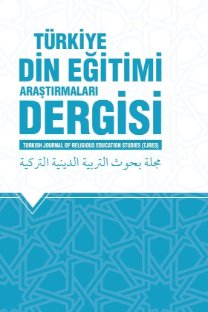Almanya’da Türklere Yönelik Şiddet ve NSU Cinayetleri
NSU (Nationalsozialistischer Untergrund) Terör Örgütü’nün sekiz Türk ve bir Yunan kökenli kurbanı öldürmesi hadisesi Alman ve Türk kamuoyu başta olmak üzere tüm dünyada büyük yankı uyandırdı. Katillerin yakalanması akabinde yaşanan hadiseler ve ele geçen bilgiler, Alman devletinin, bu cinayetlerdeki payını ve ihmalini tartışılır hale getirdi. Davanın uzun yıllar sonlanmaması ve birtakım bilgilerin kamuoyu ile paylaşılmaması ise bu konudaki şüpheleri derinleştirdi. Cinayetler akabinde Alman kamuoyunda yapılan yorumlar, genel olarak, hadiseyi katillerin bireysel tercihleri ve yönelimleri ile gerçekleştirdikleri yönündeydi. Bu makale, özel olarak, North Rhein Westfalen Eyaleti Anayasayı Koruma Kurulu, Aşırı Sağ Raportörü Christoph Buschs’un NSU davasına ilişkin değerlendirme makalesine dayanarak Alman devletinin davaya yaklaşımını tartışmaktadır. Busch’un NSU hadisesine yaklaşımı ve olayı şiddet temelli okuma eğilimi üzerine şiddet kavramı ve Alman devletinin durumu tartışılmaktadır.
Anahtar Kelimeler:
Siyaset bilimi ve uluslararası ilişkiler, Almanya, NSU, Türk cinayetleri, Şiddet, Heinrich Popitz, Christoph Busch, Political science and international relations, Germany, Homicide, Violence
Violence Against Turks And NSU Murderes in Germany
The incident of the NSU Terrorist Organization’s killing of eight Turkish and one Greek victims aroused great repercussions all over the world, especially in the German and Turkish public opinion. What happened after the murderers were caught and the information obtained made the role and negligence of the German state in these murders debatable. The fact that the case did not last for many years and that some information was not shared with the public, deepened the suspicions on this issue. The comments made by the German public after the murders were generally, that the murderers carried out the incident with their individual preferences and orientations. This article specifically discusses the German state’s approach to the case, based on Christoph Buschs's evaluation article on the NSU case. Busch is sociologist and speaker on right-wing extremism at the protection of the Constitution North Rhein Westfalen. The concept of violence and the situation of the German state are discussed on Busch's approach to the NSU incident and his tendency to read the incident as violence-based.
Keywords:
Political science and international relations, Germany, Homicide, Violence,
___
- Arendt, H. (1997). Şiddet Üzerine. Bülent Peker (çev.). İstanbul: İletişim Yayınları.
- Baberowski, J. (2015). Räume der Gewalt. Frankfurt: S. Fischer.
- Busch, C. (2013). Die NSU-Morde: ein neuer Typ rechtsextremistischer Gewalt. Totalitarismus und Demokratie, 10(2).
- Dernbach, A. (2009). Stich ins Herz. DIE ZEIT (27.10.2009).
- Geertz, C. (2020). Kültürlerin Yorumlanması. Hakan Gür (çev.). İstanbul: Dergâh Yayınları.
- Herkner, W. (2001) Sozialpszchologie. Bern: Verlag Hans Huber.
- Moser, T. (2013). Doppelspiel der Schlapphüte?. Kontext Wochenzeitung (22.05.2013).
- Moser, T. (2012). NSU ist nicht Neckarsulm, Die Tageszeitung (22.09.2012).
- Özdemir, Y. (2020). Almanya’da Neonazi-İstihbarat-Emniyet Üçgeninde NSU Cinayetleri. İstanbul: Kor Kitap.
- Popitz, H. (1992). Phänomene der Macht. Tübingen: J.C.B Mohr Verlag.
- Reemtsma, J. (2013). Vertrauen und Gewalt. Hamburg: Hamburger Edition.
- Schmitt, C. (1932). Der Begriff des Politischen. Münih: Duncker&Humbold.
- ISSN: 2149-9845
- Başlangıç: 2016
- Yayıncı: Mehmet BAHÇEKAPILI
Sayıdaki Diğer Makaleler
Salgının (Covid-19) Sosyal Etkileri: Dinî Düşünce ve Hayata Yansımaları (Afyonkarahisar Örneği)
Hz. Peygamber Dönemi ve Sonrasında Bir Misafirhane: Remle bnt. Haris ve Evinin Fonksiyonu
Irak ve Lübnan Milletlerarası Okulları ve Din Eğitimi Müfredatları: Yalova İli Örneği
Osman Kamil ÇORBACI, Hakan ÖZKAN
Sudûr Kozmolojisi: Fârâbî ve İbn Sînâ Arasındaki Farklar Üzerine Bir Değerlendirme
Almanya’da Türklere Yönelik Şiddet ve NSU Cinayetleri
Abdulrahman HAFED, Rami ALKHALAF ALABDULLA
Sosyal Medyada Cuma Tebrikleşmeleri Amacı İle Kullanılan Hashtagler
